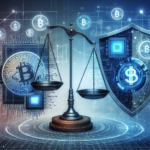Understanding Real Estate Tokenization
Real estate tokenization refers to the process of converting ownership of real estate assets into digital tokens on a blockchain. This innovation utilizes blockchain technology to provide a more efficient and transparent way to manage property investments. By representing real estate assets digitally, tokenization allows for fractional ownership, which means that multiple investors can own a share of a property, similar to how stocks work in the stock market.
The Advantages of Tokenizing Real Estate Assets
Enhanced Liquidity
One of the most significant benefits of tokenizing real estate is enhanced liquidity. Traditional real estate transactions can take a considerable amount of time and involve multiple parties, leading to relatively illiquid assets. Tokenization allows real estate assets to be easily bought and sold on digital platforms, making it possible for investors to liquidate their holdings more quickly.
Fractional Ownership
Tokenization enables fractional ownership, allowing an asset to be divided into smaller, more affordable pieces. This democratizes access to real estate investment opportunities, enabling individuals who might not otherwise have the financial capability to invest in property. By purchasing tokens representing a fraction of a property, more investors can participate in the market.
Broader Investor Base
With enhanced liquidity and fractional ownership comes the opportunity to tap into a broader investor base. Investors from various economic backgrounds can pool their resources together to invest in high-value properties that would have been beyond their financial reach individually. This inclusivity can lead to a diverse array of investors who can share in the benefits of real estate investments.
Improved Transparency and Security
Tokenization leverages the security features of blockchain technology to provide a more transparent system for real estate transactions. Each transaction is recorded on a decentralized ledger, which can be accessed by all parties involved. This transparency reduces the potential for fraud and ensures that all ownership rights and transaction histories are clear and verifiable.
Smart Contracts
The use of smart contracts – self-executing contracts with the terms of the agreement directly written into code – enhances security further. Smart contracts automate many processes involved in real estate transactions, such as payment processing and compliance with regulatory requirements. This automation minimizes the risk of errors and speeds up the transaction time significantly.
Regulatory Compliance
By utilizing blockchain for tokenization, properties can be programmed to automatically comply with regulations. This feature helps ensure that all transactions adhere to local laws, making it easier for investors to operate within legal frameworks. This aspect can notably simplify the investment process, providing peace of mind for both investors and property owners.
Cost-Effectiveness
Tokenizing real estate can lead to significant cost savings for all parties involved. Traditional real estate transactions often incur high costs due to intermediaries such as brokers, lawyers, and other professionals. By minimizing the need for these intermediaries through the use of blockchain technology and smart contracts, tokenization can lower transaction costs.
Reduced Transaction Fees
The reduction in intermediaries also leads to lower transaction fees. When properties are tokenized, buyers and sellers can engage more directly, allowing for a more streamlined process that cuts out excessive fees typically associated with mortgage brokering, legal services, and agent commissions.
ROI on Smaller Investments
Tokenization allows investors to enter the real estate market with smaller amounts of capital. This accessibility can lead to a better return on investment (ROI), especially as real estate prices appreciate over time. The opportunity to earn dividends from rental income or property appreciation on fractional shares can offer substantial financial benefits for investors, regardless of their initial investment size.
Global Investment Opportunities
Real estate tokenization removes geographical barriers, enabling investors to participate in markets worldwide without the necessity of being physically present. This global reach can maximize investment opportunities, allowing investors to diversify their portfolios by acquiring tokens from different properties in various locations.
Access to Emerging Markets
Emerging markets often present lucrative investment prospects due to their rapid growth and development potential. Tokenization enables investors to tap into these markets seamlessly, opening up new possibilities and revenue streams that were previously complicated due to local regulations and investment barriers.
Portfolio Diversification
Diversifying an investment portfolio is a critical strategy for risk management. By tokenizing real estate investments across various geographical locations and different types of properties (residential, commercial, industrial), investors can spread their risk. Consequently, this can improve the overall stability of their investment portfolios.
Challenges and Considerations in Tokenizing Real Estate
While the benefits of tokenizing real estate are substantial, it is essential to acknowledge and consider the challenges that may arise.
Legal and Regulatory Issues
Real estate is heavily regulated, and tokenization must navigate complex legal frameworks. Different jurisdictions have varying laws regarding property ownership, securities, and cryptocurrencies, making compliance a significant challenge. Investors and developers must stay informed about the regulations that apply to their specific circumstances.
Legal Framework Development
As the market for tokenized real estate grows, there will be a pressing need for updated legal frameworks that cater specifically to this new form of asset management. It is vital for stakeholders to advocate for regulations that facilitate tokenization while also protecting investor rights and interests.
Market Adoption and Understanding
Despite the potential advantages, widespread market adoption of real estate tokenization faces hurdles. Many people are still unfamiliar with blockchain technology and the concept of tokenization. Providing education and demonstrating the benefits will be crucial in gaining investor confidence.
Building Trust in a New System
Trust is a significant factor in any investment decision, and blockchain technology is still relatively new to many potential investors. Building awareness and demonstrating the reliability and security of tokenization will be essential for its success.
Technological Infrastructure and Scalability
Implementing the technological infrastructure necessary for tokenization can be a challenge in itself. Developing platforms that can handle transactions smoothly, securely, and at scale will require ongoing investment and innovation.
Conclusion
While the journey of tokenizing real estate assets presents some challenges, the potential benefits, including enhanced liquidity, transparency, cost-effectiveness, and broad investor inclusivity, suggest a transformative shift in how real estate investments are managed. By tapping into the advantages of blockchain technology, the real estate sector can cultivate new levels of efficiency and accessibility for investors worldwide.








